第104章 Chapter XX(4)
At first Terence was certain of his way, but as they walked he became doubtful. They had to stop to consider, and then to return and start once more, for although he was certain of the direction of the river he was not certain of striking the point where they had left the others. Rachel followed him, stopping where he stopped, turning where he turned, ignorant of the way, ignorant why he stopped or why he turned.
"I don't want to be late," he said, "because--" He put a flower into her hand and her fingers closed upon it quietly. "We're so late-- so late--so horribly late," he repeated as if he were talking in his sleep. "Ah--this is right. We turn here."
They found themselves again in the broad path, like the drive in the English forest, where they had started when they left the others.
They walked on in silence as people walking in their sleep, and were oddly conscious now and again of the mass of their bodies.
Then Rachel exclaimed suddenly, "Helen!"
In the sunny space at the edge of the forest they saw Helen still sitting on the tree-trunk, her dress showing very white in the sun, with Hirst still propped on his elbow by her side.
They stopped instinctively. At the sight of other people they could not go on. They stood hand in hand for a minute or two in silence.
They could not bear to face other people.
"But we must go on," Rachel insisted at last, in the curious dull tone of voice in which they had both been speaking, and with a great effort they forced themselves to cover the short distance which lay between them and the pair sitting on the tree-trunk.
As they approached, Helen turned round and looked at them.
She looked at them for some time without speaking, and when they were close to her she said quietly:
"Did you meet Mr. Flushing? He has gone to find you. He thought you must be lost, though I told him you weren't lost."
Hirst half turned round and threw his head back so that he looked at the branches crossing themselves in the air above him.
"Well, was it worth the effort?" he enquired dreamily.
Hewet sat down on the grass by his side and began to fan himself.
Rachel had balanced herself near Helen on the end of the tree trunk.
"Very hot," she said.
"You look exhausted anyhow," said Hirst.
"It's fearfully close in those trees," Helen remarked, picking up her book and shaking it free from the dried blades of grass which had fallen between the leaves. Then they were all silent, looking at the river swirling past in front of them between the trunks of the trees until Mr. Flushing interrupted them. He broke out of the trees a hundred yards to the left, exclaiming sharply:
"Ah, so you found the way after all. But it's late--much later than we arranged, Hewet."
He was slightly annoyed, and in his capacity as leader of the expedition, inclined to be dictatorial. He spoke quickly, using curiously sharp, meaningless words.
"Being late wouldn't matter normally, of course," he said, "but when it's a question of keeping the men up to time--"
He gathered them together and made them come down to the river-bank, where the boat was waiting to row them out to the steamer.
The heat of the day was going down, and over their cups of tea the Flushings tended to become communicative. It seemed to Terence as he listened to them talking, that existence now went on in two different layers. Here were the Flushings talking, talking somewhere high up in the air above him, and he and Rachel had dropped to the bottom of the world together. But with something of a child's directness, Mrs. Flushing had also the instinct which leads a child to suspect what its elders wish to keep hidden.
She fixed Terence with her vivid blue eyes and addressed herself to him in particular. What would he do, she wanted to know, if the boat ran upon a rock and sank.
"Would you care for anythin' but savin' yourself? Should I?
No, no," she laughed, "not one scrap--don't tell me. There's only two creatures the ordinary woman cares about," she continued, "her child and her dog; and I don't believe it's even two with men.
One reads a lot about love--that's why poetry's so dull.
But what happens in real life, he? It ain't love!" she cried.